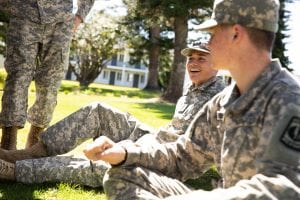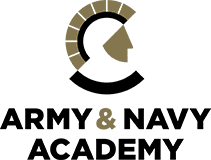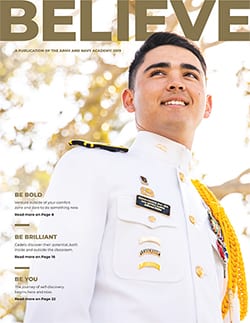 “The art of communications is the language of leadership.” –Presidential speechwriter and author James C. Humes
“The art of communications is the language of leadership.” –Presidential speechwriter and author James C. Humes
While it is true that effective leadership thrives on communication, the fact is so does everything else to varying degrees when people interact with others. Beyond its application to those in leadership, communication is the process by which information is exchanged between or among individuals (or groups) through a common set of symbols, signs, or behaviors.”
People use a variety of communication tools, including verbal communication which uses spoken or written words; visual communication that uses pictures, videos, illustrations, graphics applications, and the like; and non-verbal communication that, among other things includes the communicator’s appearance, facial expressions, body posture, eye contact, voice intonations, gestures, and other body movements.
Communication is a learned set of skills
Communication is by no means intuitive; it is a complex skill set that must be learned through instruction and practice. And, the sooner the better, given the time it takes to learn, and master communicate skills in today’s ever-changing communications environments. Those skills include how to craft the content of the message(s), as well as how and when to communicate the message(s). Even informal conversations often require careful thinking in advance about the personal and social dynamics involved in how and when to say something.
However, developing and sending the message is only the first step in effective communications. The message needs to be received and understood by the receiver in order to complete the communications cycle.
“Active listening” hears what people are really saying
Are we communicating when we’re listening? Yes, we are. Following up on the last paragraph, a www.mindtools.com blog makes the point: “Listening is one of the most important skills you can have. How well you listen has a major impact on your…relationships with others.
“Given all the listening we do, you would think we’d be good at it. In fact, most of us are not, … research suggests that we only remember between 25 percent and 50 percent of what we hear… By becoming a better listener, you can improve your productivity, as well as your ability to influence, persuade and negotiate. What’s more you’ll avoid conflict and misunderstandings … all (of which) are necessary for … success.”
The blog lists four key active listening techniques in verbal and non-verbal communications that can be used to become a more effective listener in oral communications settings – and therefore a more effective communicator:
- Pay Attention. Give the speaker your undivided attention and acknowledge the message by looking at the speaker directly, putting aside distracting thoughts such as thinking about what you’re going to say, and “listening” to the speaker’s body language.
- Show that you’re listening. Use your own body language and gestures to show you’re engaged by nodding affirmatively, smiling (when the topic is appropriate), showing interest by your posture (e.g.: Don’t cross your arms across your chest or glare at the speaker). Instead, encourage the speaker with small verbal assents ‘’ “I see,” “good point,” etc.
- Provide feedback. When appropriate, reflect on what has been said by paraphrasing. e.g.” What I’m hearing you say…” Ask questions to clarify certain points. e.g. “Is this what you mean?”
- Defer judgment. Interrupting the person talking is a waste of time. Allow the speaker to finish each point before asking questions or voicing disagreement.
Why having communication skills is important
- The need for communications skills is everywhere. Writing and good speaking skills are virtually tied to every career and are required in any endeavor in which persons or organizations communicate with each other.
- Communication skills build personal self-esteem. Being able to communicate effectively makes the communicators more self-confident. As a result, they are more able to convince and persuade others, and interact positively with persons they don’t know.
- Communication skills influence how one learns. Having communications skills plays an important part in young people acquiring knowledge and even forming their core beliefs. Those skills begin with learning how to have productive conversations with individuals and in group settings, learning how to communicate effectively when answering questions, and how to communicate one’s opinion or point of view to convince or persuade others in situations when there are differing points of view.
- Communications skills are in demand earlier that most people think. The ability to speak and write clearly are critical skills demanded as early as in high school. Not only must written term papers, book reports, essay answers on exams, speeches and oral communications be free of punctuation, spelling, and grammatical errors, they must be organized and presented in such a way as to convince the teacher that the student understands the topic at hand. Why is that important? First of all, communication excellence contributes to a superior grade point average which is an important metric in gaining admission to a desired college or university.
Also, college hopefuls write essays and take part in follow-up oral interviews, both of which are major factors in gaining admission. The same holds true for the students who write essays and are interviewed when applying for scholarships.
- Communication skills are in demand later in careers. Oral and written communications proficiencies are almost always listed among the 10 most desirable skills in employer surveys year after year. In some cases, many seasoned executives who weren’t grounded in communications training in school or earlier in their careers find it necessary to develop those skills to advance in their careers.
- Acquiring communication skills can be fun. Teenagers, for the most part, often gain a healthy respect for the powerful impacts communications have in their everyday lives; in particular, the influence the news media have on political and social issues. It’s one reason Communications and Journalism are popular courses of study today in colleges and universities.
How to gain communications skills
Gaining communications skills begins in the classrooms. For example, the Army and Navy Academy, a private college preparatory boarding school for 7th– through 12th-grade boys in Carlsbad, Calif., trains its Cadets in solid writing skills, beginning with nearly a dozen levels of regular and advanced placement classes, continuing across the curriculum to virtually every academic subject – even mathematics where cadets maintain written journals to explain how to solve math problems.
The Academy develops effective oral and other non-writing communications skills for its Cadets through participating in the Model United Nations, Harvard Model Congress, classroom debates, the school’s JROTC leadership training program; the Associated Student Body student government, drama productions, and nearly 20 club organizations on and off campus.
For those interested in pursuing journalism or marketing communications in college, the Academy gives Cadets the opportunity to be reporters, newscast anchors, and technicians through the school’s ANA-TV closed-circuit channel.
For the Academy’s international cadets, the school offers the English as a Second Language (ESL) program to enable them to become proficient in English for college and beyond.
To sum it up: “If you just communicate, you can get by. But if you communicate skillfully, you can work miracles.” –Jim Rohn, entrepreneur, author, motivational speaker
For further information on the Army and Navy Academy, visit the website at https://www.armyandnavyacademy.org; e-mail at admission@armyandnavyacademy.org or phone at 888.762.2338.


